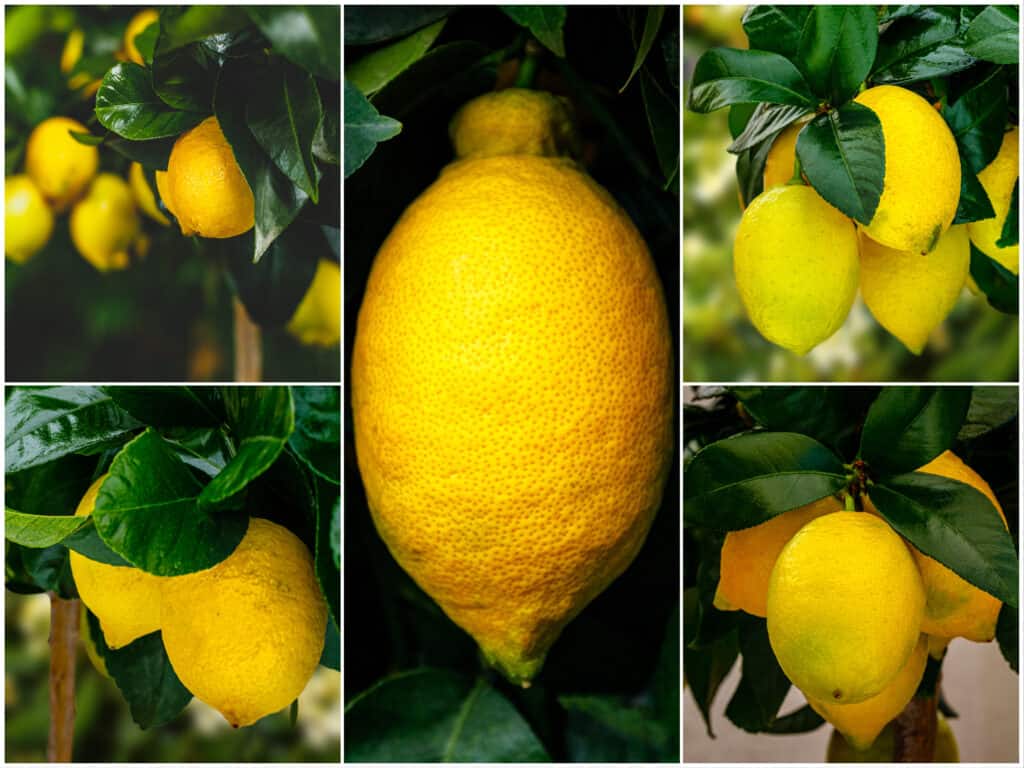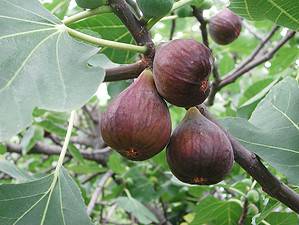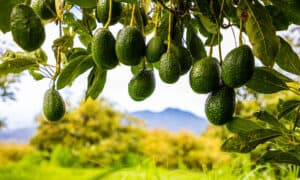When it comes to citrus trees, there are two well-known varieties: the eureka and Meyer lemon trees. Both get praised for their juicy, tart fruits, but there are some key differences between these two types of trees.
The eureka lemon tree is the more traditional of the two, and its fruit is ideal for cooking and baking. On the other hand, the Meyer lemon tree is a hybrid of the eureka lemon and a Mandarin orange. As such, it is often used as a decorative tree or for its essential oils.
Perhaps the most significant difference between these two types of trees is their size. The eureka lemon tree can grow up to 20 feet tall, while the Meyer lemon tree typically only reaches about 10 feet. In addition, the color of the fruit is different. Eureka lemons are a deep yellow, while Meyer lemons are more light yellow or orange.
So, let’s delve into the difference between eureka and Meyer lemon trees and what makes them unique!
Comparing Eureka and Meyer Lemon Tree
| Eureka Lemon Tree | Meyer Lemon Tree | |
|---|---|---|
| Classification | Kingdom: Plantae Clade: Tracheophytes Clade: Angiosperms Clade: Eudicots Clade: Rosids Order: Sapindales Family: Rutaceae Genus: Citrus Species: C. limon Binomial name: Citris limon | Kingdom: Plantae Clade: Tracheophytes Clade: Angiosperms Clade: Eudicots Clade: Rosids Order: Sapindales Family: Rutaceae Genus: Citrus Species: C. × meyeri Binomial name: Citrus × meyeri |
| Origin | Asia | China |
| Plant Type | Evergreen tree | Tree, shrub |
| Physical description | Eureka lemon trees grow 20 feet tall. The fruit is oblong with a medium-gold and yellow color. Thick skin and thornless. Leaves are big and leathery. Trees produce five-petaled pink flowers that are white when open and blooming. | Meyer lemon trees grow 10 feet tall and look like large shrubs. Dark green leaves and fragrant white flowers are lavender at the base of the petals. Fruit is yellow with a hint of orange. |
| Uses | – Cooking – Weight control management – Improve heart health – Reduce cholesterol levels – Regulate blood pressure – Reduce risk of cancer – Prevent kidney stones – Protect against anemia | – Cooking – Weight control management – Improve heart health – Reduce cholesterol levels – Regulate blood pressure – Reduce risk of cancer – Prevent kidney stones – Protect against anemia |
| How to Grow | – Grow in full sunlight – Loamy, sandy soil – Acidic soil – Water daily – 75 degrees Farenheight, never below 20 degrees Farenheight | – Plant in spring – Full sunlight – Sandy, well-draining soil – Acidic soil – Water daily – 50-80 degrees Farenheight |
| Toxicity | Toxic to dogs, cats, and horses | Toxic to dogs, cats, and horses |
Eureka vs. Meyer Lemon Tree: Classification and Origin
The botanical name for eureka lemons is Citrus limon. They are native to Asia, and the species consists of small evergreen trees in the Rutaceae family. The eureka is a cultivar of Citrus limon that originates from California. The discovery of eureka lemons in 1858 in Los Angeles, and many believed the seedlings came from Sicily, Italy.
Citrus × meyeri is the binomial name for Meyer lemon trees and is native to China. It is a hybrid fruit (a cross between citron and mandarin) grown throughout California by the mid-1940s. It first made its way to the United States from China when Frank Meyer traveled to China in the 1900s. He was a critical plant enthusiast who introduced hundreds of plant species to the country.
The Meyers lemon tree is easily one of the best citrus trees to grow in the backyard, but it isn’t easy to commercialize due to its thin and delicate skin. Today, they grow in subtropical regions around the United States.
Eureka vs. Meyer Lemon Tree: Physical Description
Eureka lemon trees grow to around 20 feet tall when it reaches maturity. The leaves are big and leathery with drooping branches. They are thornless trees that produce many five-petaled pink flowers a few times a year that are white when they fully open. Eureka lemon trees take about three years to bear fruit.
Eureka lemons are oblong and have a medium-gold and yellow color. The skin is thicker than what Meyer lemon trees produce, but Meyer lemons look more like true lemons in terms of pulp, color, and shape. Eureka lemon trees will provide the most fruit in spring and summer. However, if weather conditions are favorable, they can produce beautiful fruit all year. Meyer lemons grow in the fall and winter months.
Meyer lemon trees only grow to 10 feet tall and 4 – 8 feet wide, often resembling large shrubs. The leaves are dark green, producing fragrant white flowers with a hint of purple at the base of the petals. The fruit is yellow with a hint of an orange color when they are ready for picking. The pulp contains ten seeds and dark yellow.

Collage of Citrus Limons growing on a tree branch.
©nnattalli/Shutterstock.com
Eureka vs. Meyer Lemon Trees: Uses
Both eureka and Meyer lemons get used for culinary and ornamental reasons. The juice from their fruit makes delicious drinks like lemonade and cocktails. You can make a good salad dressing or use lemon juice to tenderize meat.
Lemons are a good source of fiber and vitamin C. As a result, they are excellent for supporting weight control management and heart health. In addition, the fruit has soluble pectin fiber, which is known to expand in your stomach, making you feel fuller for longer. This also helps to stabilize your blood sugar levels and prevent diabetes.
Research also shows that the plant compounds consist of diosmin and hesperidin, which means eating 24g of citrus fiber daily can reduce cholesterol levels. Also, each lemon has 31mg of vitamin C, which is 51% of your required daily intake. Vitamin C is good for your heart and can reduce the risk of stroke and heart disease. In addition, the potassium in lemons will also regulate blood pressure.
Other health benefits include:
- Aromatherapy: Lemon and other citrus scents promote calm and stimulate brain function.
- Reduce the risk of cancer: Research shows that eating citrus fruits can lower cancer risk and kill cancer cells.
- Prevent kidney stones: Citric acid can increase urine pH, preventing kidney stone formation.
- Protect against anemia: Vitamin C and citric acid ensure your body absorbs enough iron to prevent anemia.
Eureka vs. Meyer Lemon Tree: How to Grow
How to Grow Eureka
Eureka lemon trees produce plenty of fruit as they are evergreen throughout the year, and flowers bloom in the spring. The beautifully aromatic white flowers and bright green leaves make eureka an excellent choice to make your property more attractive. In addition, you can plant them in warm climates and see them mature in as little as three years.
Growing eureka tips:
- Grow in full sunlight or partial shade.
- Soil type sandy, loamy, clay.
- Eureka is sensitive to cold weather conditions.
- They thrive in acidic soil.
- Water every day and keep the soil moist.
- Prefer temperatures of 75 degrees Fahrenheit and above – never below 20 degrees Farenheight.
How to Grow Meyer Lemon Trees
Meyer lemon trees are special in that they have a touch of sweetness with their lemony taste. Not surprising since they are a cross between a lemon and mandarin oranges. In addition, Meyer lemon trees are small, bush-like and make great container plants. They are low-maintenance trees and require little pruning.
Growing Meyer lemon tree tips:
- Plant in early spring.
- Requires full or partial sunlight.
- Use sandy, well-draining soil.
- Blooms in the fall and spring.
- Prefers acidic soil with a 5.5 – 6.5 pH.
- Water soil daily – keep them moist, not soaked.
- They thrive in 50 – 85 degrees Farenheight.
Note: Eureka and Meyer lemon trees are toxic to dogs, cats, and horses. Ensure trees are out of reach of your beloved pets, and keep an eye out for signs and symptoms should they occur. These symptoms include:
- Diarrhea
- Vomiting
- Depression
- Potential dermatitis
The photo featured at the top of this post is © RebeccaJaneCall/Shutterstock.com
Sources
- Wikipedia, Available here: https://en.wikipedia.org/wiki/Lemon
- Wikipedia, Available here: https://en.wikipedia.org/wiki/Meyer_lemon
- Science Direct, Available here: https://www.sciencedirect.com/science/article/abs/pii/S0271531705801757
- National Library of Medicine, Available here: https://pubmed.ncbi.nlm.nih.gov/22574825/
- National Library of Medicine, Available here: https://pubmed.ncbi.nlm.nih.gov/18373174/
FAQs (Frequently Asked Questions)
Is the Eureka lemon the same as the Meyer lemon?
Eureka lemons are like the ones you purchase in the store. They have a sour, tangy flavor, while Meyer lemons have a touch of sweetness. In addition, Meyer lemons have thinner skin, while eureka lemons are textured and thicker.
Are eureka lemons good?
Eureka lemons have a great tart flavor and get highly valued for their sharp flavor and aromatic peel. In addition, they are easy to grow and have wonderful health benefits, such as reducing the risk of heart disease and cancer.
What is the best lemon tree variety for growing?
Meyer lemon trees are one of the best lemon tree varieties because they are effortless to keep. You can grow them in a pot, and they only reach around 10 feet tall.
How long does it take for eureka lemon trees to bear fruit?
Eureka lemon trees take about three years to mature and start bearing fruit. However, under the right conditions, they can bear fruit sooner.
Thank you for reading! Have some feedback for us? Contact the AZ Animals editorial team.






